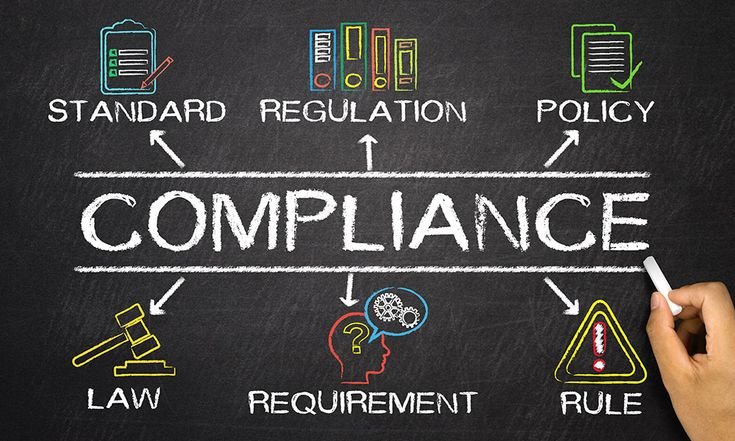As the digital landscape evolves, data privacy has become a critical issue for businesses of all sizes. Texas has introduced new regulations like the Texas Data Privacy and Security Act (TDPSA) to protect consumer information, and businesses must adapt to comply with these laws.
This blog focuses on the specific requirements and impacts of data privacy regulations on Texas businesses, with practical advice to help you navigate this evolving legal landscape.
What Are Data Privacy Regulations?
Data privacy regulations are designed to protect individuals’ personal information by requiring businesses to be transparent about how data is collected, used, and stored. In Texas, the primary framework is the TDPSA, which introduces consumer rights and business responsibilities.
Key Features of the TDPSA:
- Consumer Rights: Texas residents can access, correct, delete, and opt out of the sale of their personal data.
- Business Obligations: Companies must provide clear privacy notices and secure customer data.
- Scope of Application: The TDPSA applies to businesses processing data from at least 50,000 Texas consumers annually or deriving 25% or more of their revenue from selling personal data.
How Data Privacy Regulations Impact Texas Businesses
1. Compliance Requirements
Texas businesses must take specific actions to meet the requirements of the TDPSA:
- Privacy Notices: Update privacy policies to reflect consumer rights and data handling practices.
- Data Security: Implement technical and organizational measures to protect personal information.
- Consumer Requests: Set up systems to respond to requests for data access, corrections, and deletion.
2. Financial Implications
Compliance with data privacy laws requires investment in technology, training, and legal expertise. Non-compliance could lead to penalties, including fines, and reputational damage.
Example: A small business that fails to honor a consumer’s request to delete their data could face penalties under the TDPSA.
3. Operational Changes
To comply with the TDPSA, businesses must implement operational adjustments, such as:
- Conducting regular data audits to understand what information is collected and where it is stored.
- Training employees on data privacy best practices.
- Updating systems to handle consumer requests efficiently.
4. Consumer Trust and Brand Reputation
Transparency about data collection and usage can enhance customer trust. By complying with Texas laws, businesses signal their commitment to protecting consumer rights, which can become a competitive advantage.
Steps Texas Businesses Can Take to Stay Compliant
1. Understand the Law – Familiarize yourself with the TDPSA requirements and identify how they apply to your business.
2. Conduct a Data Audit – Review what data you collect, how it’s stored, and who has access to it.
3. Update Privacy Policies – Ensure your privacy policy includes the rights granted to Texas consumers and complies with TDPSA standards.
4. Invest in Data Security – Use encryption, firewalls, and other tools to protect sensitive information from breaches.
5. Respond to Consumer Requests – Set up a clear and efficient process for managing access, correction, deletion, and opt-out requests.
6. Train Your Team – Educate employees on the importance of data privacy and how to comply with the law.

Why Compliance Is a Business Opportunity?
Rather than viewing data privacy regulations as a burden, Texas businesses can see them as an opportunity:
- Enhance Trust: Consumers are more likely to engage with businesses that prioritize their privacy.
- Gain a Competitive Edge: Compliance can differentiate your business in a crowded market.
- Reduce Risk: Avoid legal penalties and the reputational damage of a data breach.
Data Privacy Compliance Checklist for Texas Businesses
Ensure your business is compliant with the Texas Data Privacy and Security Act by following this simple checklist:
- Conduct a data audit to identify personal data types, storage locations, and usage.
- Review and update privacy policies to include Texas-specific consumer rights and data practices.
- Implement robust data security protocols including encryption, secure storage, and access controls.
- Set up a system to process consumer requests for data access, correction, deletion, and opting out.
- Train employees on data privacy laws, secure data handling, and breach response procedures.
- Ensure data protection during cross-border transactions if your business operates outside Texas or serves international customers.
- Monitor changes in data privacy regulations to stay updated on new requirements and best practices.
Cross-Border Considerations for Texas Businesses
For Texas businesses that operate across state lines or serve customers in other countries, cross-border data privacy compliance can become even more complex. You need to ensure that your operations align with both Texas-specific laws and the data privacy regulations of other regions.
Key Cross-Border Regulations to Know:
1. General Data Protection Regulation (GDPR): If your business collects or processes data from European Union (EU) citizens, the GDPR applies regardless of where your business is located.
GDPR mandates stricter data protection standards, including the right to be forgotten and stringent data breach notification requirements.
2. California Consumer Privacy Act (CCPA): If you do business in California or have customers from California, the CCPA applies, offering residents the right to access, delete, and opt out of the sale of their personal data.
Businesses must comply with these rights if they meet certain thresholds (e.g., revenue or data volume).
3. Data Sovereignty Laws: Some countries, like Canada and Australia, have data sovereignty laws that require personal data to be stored within the country’s borders or subject to local regulations.
4. International Data Transfers: Be aware of how your business transfers data between jurisdictions, as international data transfers may be subject to additional safeguards like Standard Contractual Clauses (SCCs) under GDPR or other data protection frameworks.
Steps for Managing Cross-Border Compliance:
- Identify Jurisdictional Applicability: Determine which regulations apply based on where your customers are located or where your business operates.
- Implement Data Protection Mechanisms: Use encryption and data anonymization for cross-border transfers to comply with international data protection laws.
- Review Third-Party Contracts: Ensure that any third-party vendors or service providers involved in handling personal data are also compliant with the applicable regulations
- Update Privacy Policies for International Audiences: If you serve customers in other regions, ensure your privacy policy includes specific language for cross-border data practices.
Conclusion
Data privacy regulations like the Texas Data Privacy and Security Act are reshaping how businesses collect, store, and use personal information. These laws aren’t just about avoiding penalties, they are an opportunity to build trust with your customers and demonstrate your commitment to protecting their data.
For Texas businesses, staying compliant means taking proactive steps like conducting data audits, updating policies, and ensuring robust security practices. As cross-border operations grow, businesses must also navigate a complex web of international and interstate regulations to safeguard their reputation and avoid legal pitfalls.
By prioritizing data privacy, Texas businesses can not only meet regulator requirements but also enhance customer loyalty, differentiate themselves from competitors, and strengthen their position in an increasingly privacy-conscious market.
Disclaimer: Nirvana Legal Solutions provides professional paralegal services to assist with legal administrative tasks. We do not provide legal advice, represent clients in court, or engage in the practice of law. For legal advice or representation, please consult a licensed attorney.





0 Comments